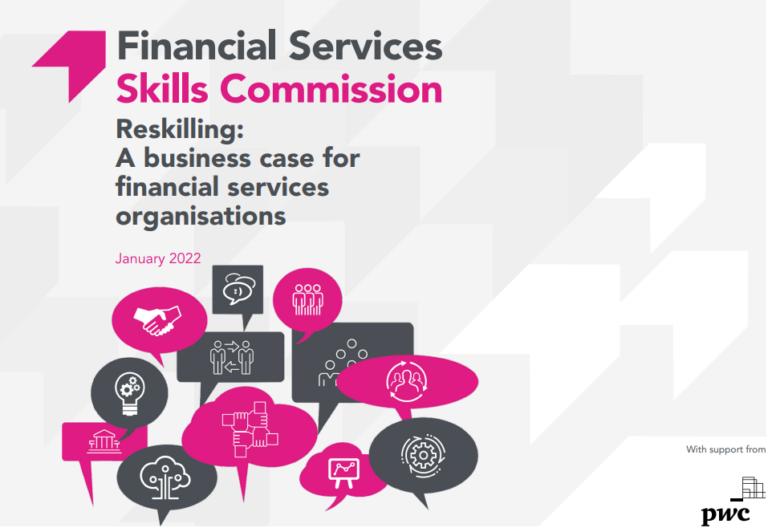24 March 2023
Back to the future – critical skills to boost innovation and productivity across financial services.

The UK has seen record labour shortages over the last year with one in five job posts vacant across the FS sector, one of the highest rates ever recorded. This coupled with increased digitisation and automation means one in eight roles across FS are tech roles. And official data shows a 24% increase over the last 5 years in programme and software developer roles, with 174,168 specialists now in post.
We have also seen a steady increase in highly skilled roles in the industry, increasing from 50% of roles in 2004 to 70% today. This compares to 51% of highly skilled roles across the UK economy. The effect of this trend, driven by automation and technological change points to an increasing need for the UKs financial services sector to focus on talent supply.
A year ago today we published ‘Mind the gaps – skills for the future of financial services’, report, which outlined five future skills including data analytics & insight, software development and digital literacy coupled with creative thinking and coaching behaviours which are viewed as integral to maintaining the sector’s competitiveness, and sustainable growth by FSSC members and stakeholders. The report showed 20% of FSSC members (which collectively employ one third of the overall UK FS sector workforce) do not yet collect data on future skills.
So how are firms grappling with the seismic demand towards tech and data skills and securing a consistent supply of talent? Firms are working hard to address this challenge through internal upskilling and reskilling programmes, but the skills gaps remain a huge conundrum for the industry. The good news is 65% of firms which invest in future skills reported a reduced need to hire for roles externally. And our Reskilling: A business case for financial services organisations, with PwC provides evidence on the cost savings financial services firms can benefit from when they reskill an employee; versus hiring someone new with the relevant skills.
In autumn last year we developed the Skills Gap Analysis Toolkit in partnership with Lloyds Banking Group to support our members improve their capacity and capability to identify future skills for the long term and to support ongoing skills forecasting. The FSSC has been carefully monitoring the Future Skills trends and at the end of April we will publish an updated Future Skills report which focuses on the importance of identifying and forecasting future skills to retain talent and boost innovation and productivity. Watch this space.
Photo by John Schnobrich on Unsplash





